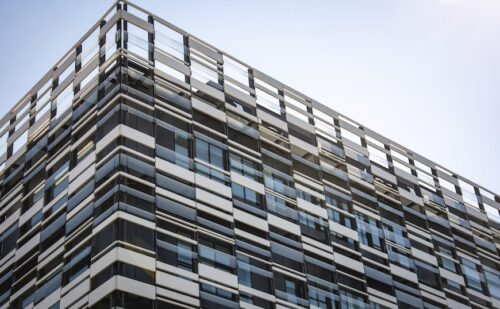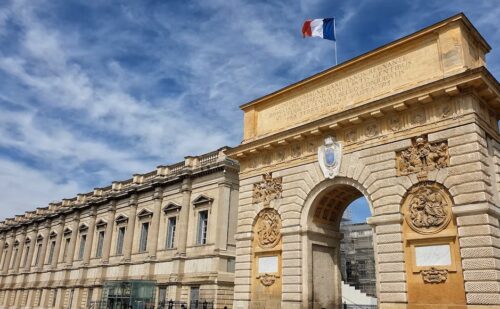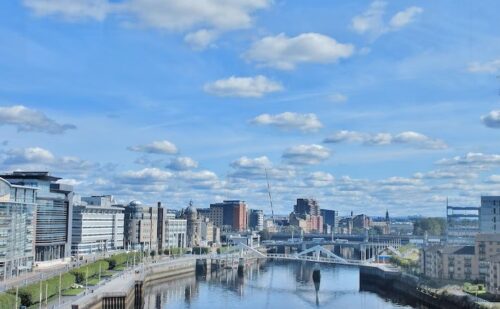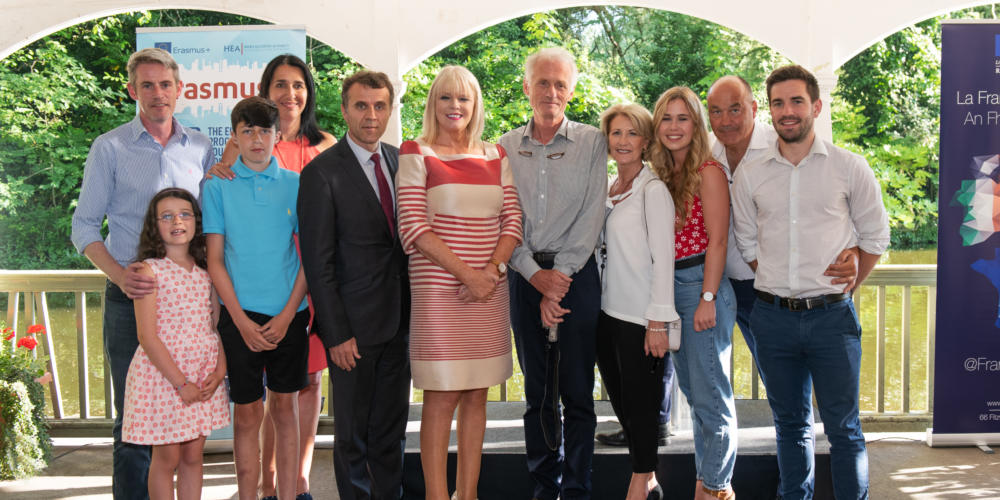
Erasmus Families on view in St. Stephen’s Green Park Dublin
Gerry O'Sullivan
Posted: 3 July, 2018
In a journey of some 14,350 kilometers throughout the European Union, French photographer Frédéric de la Mure met with 40 children aged between 5 days and 23 years old and took over 11,065 snapshots. A unique selection from that huge collection is now on display in St. Stephen’s Green Park, Dublin celebrating the many families that have been created from relationships that started while on Erasmus mobility trips.
(Top) Erasmus Families with Minister of State for Higher Education Mary Mitchell O’Connor TD, French Ambassador Stephane Crouzat (left), Frédéric de la Mure (right) and (from left) Aidan and Severine McCarthy and family and (on right) Paschal and Siobhan Bonnichon and family.
The Erasmus+ National Agency at the HEA has joined forces with the French Embassy with the support of the Representation of the European Commission in Ireland and Embassies of Belgium, Denmark, Finland, Germany, Great Britain, Hungary, Italy, the Netherlands, Norway, Poland, Spain, and Switzerland to launch the Irish premiere of the “European Union[s]”, a photo exhibition presenting 17 Franco-European families who met through the Erasmus programme.
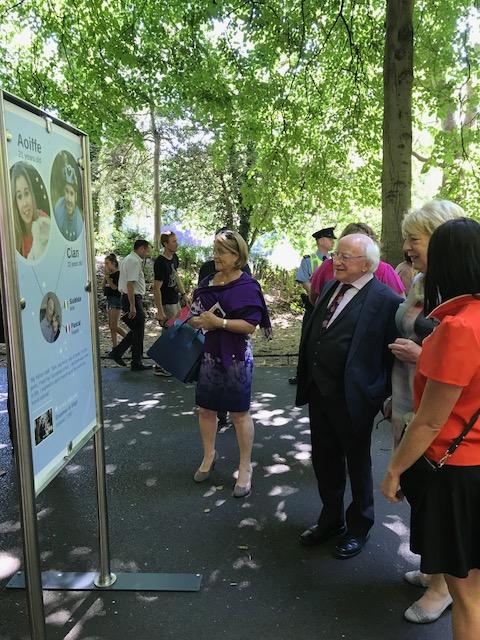
President Michael D Higgins and his wife Sabina were among the first visitors to the Exhibition.
Over the last 30 years, the Erasmus programme has helped more than 9 million Europeans to forge links that transcend national frontiers. It is reckoned that over a million babies have been born to couples who met as a result of an higher education exchange under the Erasmus scheme.
The European Union[s] exhibition features portraits of 17 of these families of 17 different nationalities. All of them bear witness to the programme’s success and to the keen sense of European identity it has sparked among them. 60 years after the Treaties of Rome, Europe faces many political challenges. And yet, Europe is now a practical reality for millions of men and women all over the continent. It is this human side which the photo exhibition European Union[s] highlights.

From left: Stephane Crouzat, French Ambassador; Mary Mitchell O’Connor TD, Minister of State for Higher Education; Frédéric de la Mure, Photographer; Gerry O’Sullivan, Erasmus+ NA at the HEA
Throughout the project, French Ministry for Europe and Foreign Affairs photographer Frédéric de la Mure succeeded in showing how each member of the couple remained deeply attached to the culture of his or her country of origin while at the same time appropriating much of that of the other partner. More than anything else, he was struck by the fact that for the vast majority of these binational couples Europe, through the Erasmus programme, not only changed their lives but also turned them into pro-European activists, especially in these difficult times.
Speaking ahead of the launch, Ambassador Crouzat declared: “This exhibition organised in partnership with the Higher Education Authority, twelve Embassies from the European Union and the Representation of the European Commission in Ireland is a testimony to the human adventures that were sparked by the Erasmus programme. Illustrating the daily lives of families, it is the perfect illustration of the European Union’s motto: “united in diversity”. I am proud to help share this positive inspiration in Dublin.”
Dr. Graham Love, Chief Executive, Higher Education Authority commented “the HEA and the Erasmus+ National Agency are delighted to be associated with this very special exhibition symbolising European integration at its most personal level. The EU grew from a time when Europe was on its knees and initiatives like Erasmus have played a huge part in building citizen to citizen contact.”
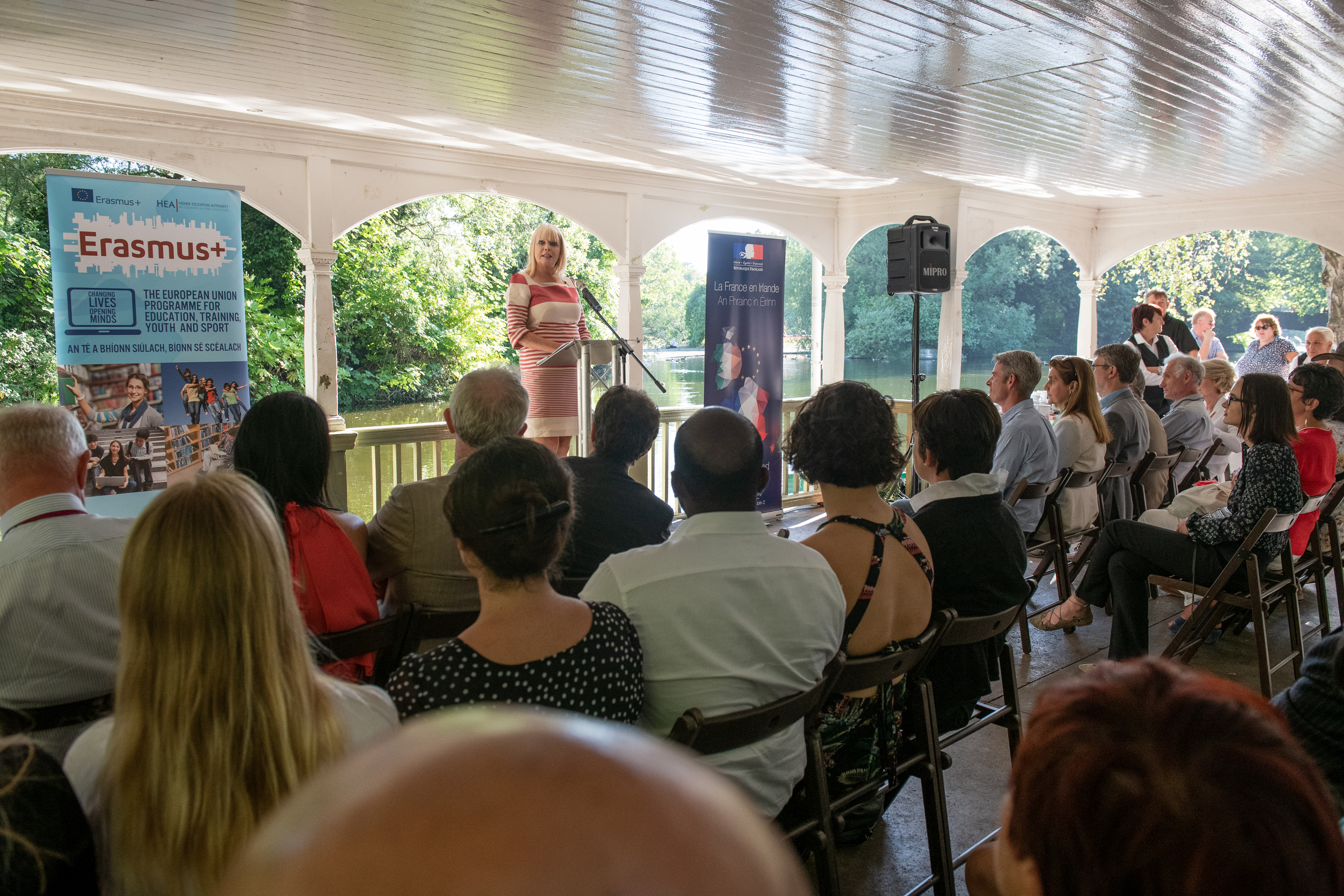
Summer House – St. Stephen’s Green Park, Dublin
France remains the first destination for an average of 700 Irish students each year while an average of 2,300 French students elects Ireland as their Erasmus destination, making them the biggest Erasmus+ community in Ireland. Overall, 55,000 Irish students went on Erasmus since the programme’s inception in 1987.
